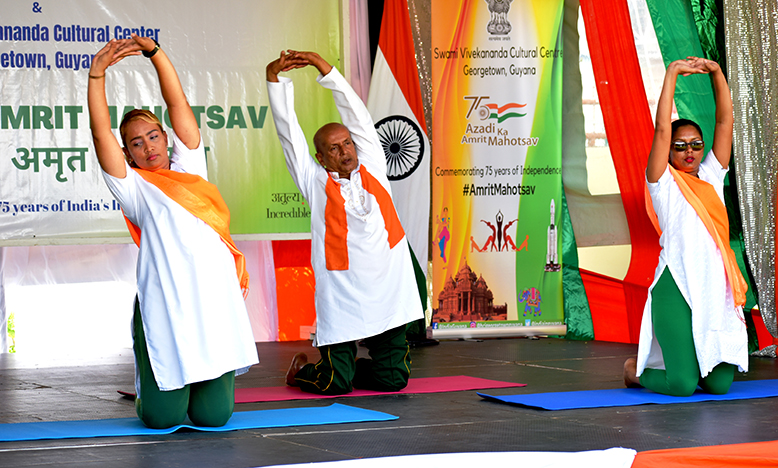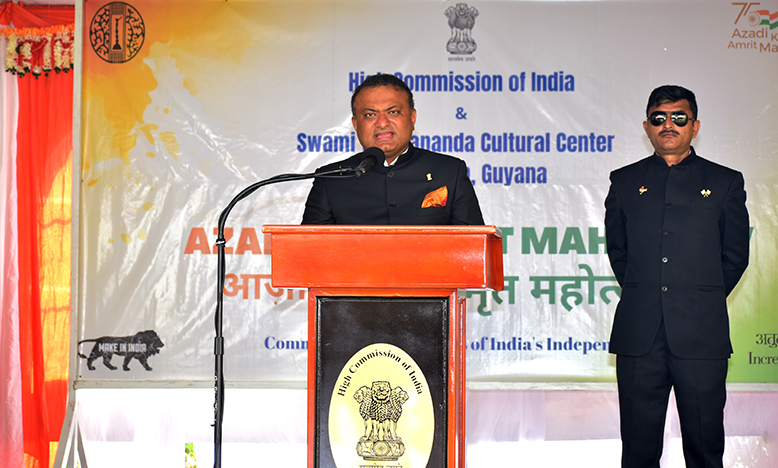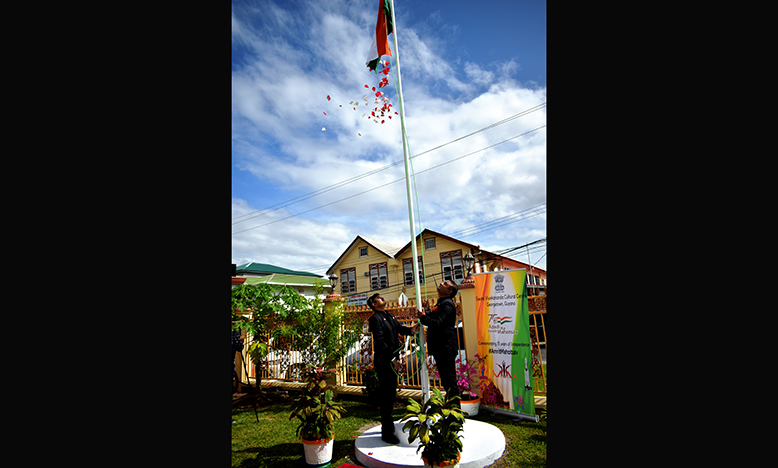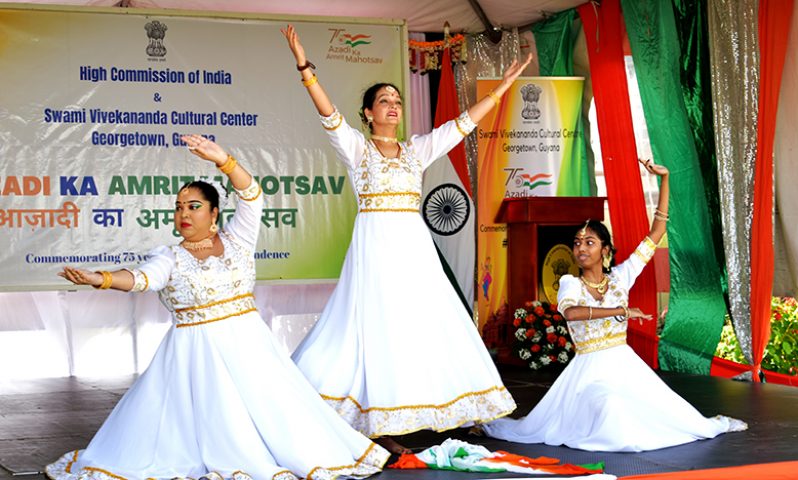AS India, on Monday, celebrated 75 years since its independence, the High Commission of India in Georgetown held a special celebration at the Swami Vivekananda Cultural Centre, Georgetown.
The event saw several cultural performances including rhythmic yoga, singing, and dances.
India’s High Commissioner to Guyana, Dr. K J Srinivasa, related a message to attendees on behalf of India’s President, Shrimati (Smt) Droupadi Murmu.
High Commissioner Srinivasa said that, as the country celebrates its independence, respect is owed to those men and women who have made enormous sacrifices to make a ‘free India’ possible.

For Srinivasa, the celebration was not only for India, but for every advocate of democracy around the world.
In the read statement, High Commissioner Srinivasa said that when India won Independence in 1947, there were many international leaders and experts who were sceptical of the success of a democratically-elected government in India.
During those days, it was noted, democracy was limited to economically advanced nations.
“India, after so many years of exploitation at the hands of foreign rulers, was marked by poverty and illiteracy. But we Indians proved the sceptics wrong.
“Democracy not only grew roots in this soil, it was enriched too. In most other well-established democracies, women had to wage long-drawn struggles to get the right to vote, but India adopted universal adult franchise right since the beginning of the Republic,” the High Commissioner noted.
The Indian diplomat explained that, for an ancient nation such as India, 75 years was merely a blink of an eye. But for some, it is a lifetime.
“Senior citizens among us have witnessed a dramatic change in their lifetime. They have seen how after Independence all the generations have toiled hard, how we met great challenges and how we have taken charge of our destiny,” he said.

By 2047 when India celebrates its centenary of Independence, the High Commissioner continued, India would have fully realised the dreams of freedom fighters as it is already on its way to building an India that would have realised its true potential.
He explained that the world has seen a new India rising in recent years, more so after the outbreak of COVID-19.
“Our response to the pandemic has been appreciated everywhere. We launched the biggest vaccination drive in human history with vaccines manufactured in the country itself,” he expressed.
Last month, India crossed the 200-crore (one crore equals ten million) mark in cumulative vaccine coverage.
“The pandemic has uprooted lives and also economies in the entire world. When the world has been battling the economic consequences of the great crisis, India got its act together and is now moving forward.
“India is among the fastest growing major economies in the world,” the High Commissioner plugged.
During the last few years, extraordinary progress has been made in the development of physical and digital infrastructure in India.
Referencing the President’s remarks, High Commissioner Srinivasa said that through the national master plan for multi-modal connectivity, travel by water, land, and air are being integrated into the whole country to enable seamless transportation across the country.

“What is all the more heartening is that the growth is becoming more inclusive, and regional disparities too are reducing.
“But this is only the beginning. A series of economic reforms and policy initiatives have been preparing the ground for a long term Digital India,” he said.
The Indian diplomat added: “The ‘National Education Policy’ is aimed at preparing the future generation for the next stage of industrial revolution while also reconnecting it with our heritage.
“Economic success is leading to an ease in living too. Economic reforms are rightly accompanied by innovative welfare initiatives.”
The aim of these and many other similar efforts, High Commissioner Srinivasa communicated on behalf of his country’s President, is to provide basic amenities to all, particularly the poor.



.jpg)











